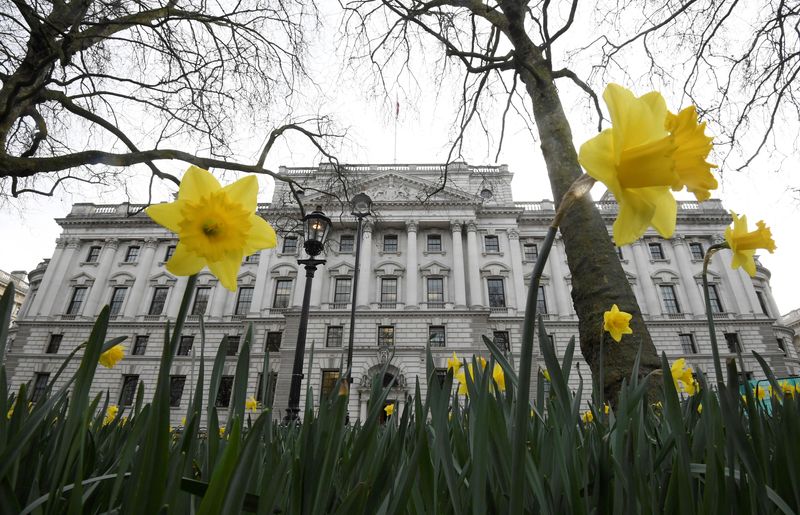LONDON (Reuters) - Short-dated British government bond yields fell further below zero on Friday, setting fresh all-time lows, after data showed a record collapse in retail sales due to the coronavirus and the Bank of England said more bond purchases are "quite possible".
Two-year gilt yields (GB2YT=RR) dropped as low as -0.080% and five-year yields (GB5YT=RR) sank to -0.039% at 0718 GMT, down 3 basis points, just a couple of days after a three-year gilt sold at auction with a negative yield for the first time.
Six- and seven-year gilt yields (GB6YT=RR) (GB7YT=RR) also traded in negative territory and recorded their lowest levels since March 9, as did benchmark 10-year yields (GB10YT=RR), which dropped 2 basis points to 0.15%.
The climb in gilt prices came despite official data showing the highest monthly government borrowing on record in April at 62.1 billion pounds and Britain's debt-to-GDP ratio jumping to its highest since 1963 at 97.7%.
The higher borrowing reflects a surge in spending to mitigate the effect of the coronavirus and falling tax revenues. Official figures on Friday showed retail sales dropped a record 18.1% in April due largely to the lockdown.
The Bank of England's announcement in March that it would buy an extra 200 billion pounds ($244 billion) of assets, mostly gilts, has played a major role in keeping yields low.
BoE Deputy Governor Dave Ramsden told Reuters in an interview published earlier on Friday that it was "quite possible" the BoE would announce more gilt purchases, and the central bank had plenty of headroom to do so.
Negative interest rates also remained under consideration, though they would be complex to implement, he added, echoing recent comments from BoE Governor Andrew Bailey.
"The amount of debt is not necessarily what matters, but the cost to service this debt," said Paul Craig, a portfolio manager at wealth management company Quilter Investors.
"While gilts are being sold with negative yields, and the BoE being the most prominent buyer of this debt, the government will be fairly comfortable with the borrowing that is required currently," he added.
Government budget forecasters last week estimated borrowing this financial year could reach 298 billion pounds.
